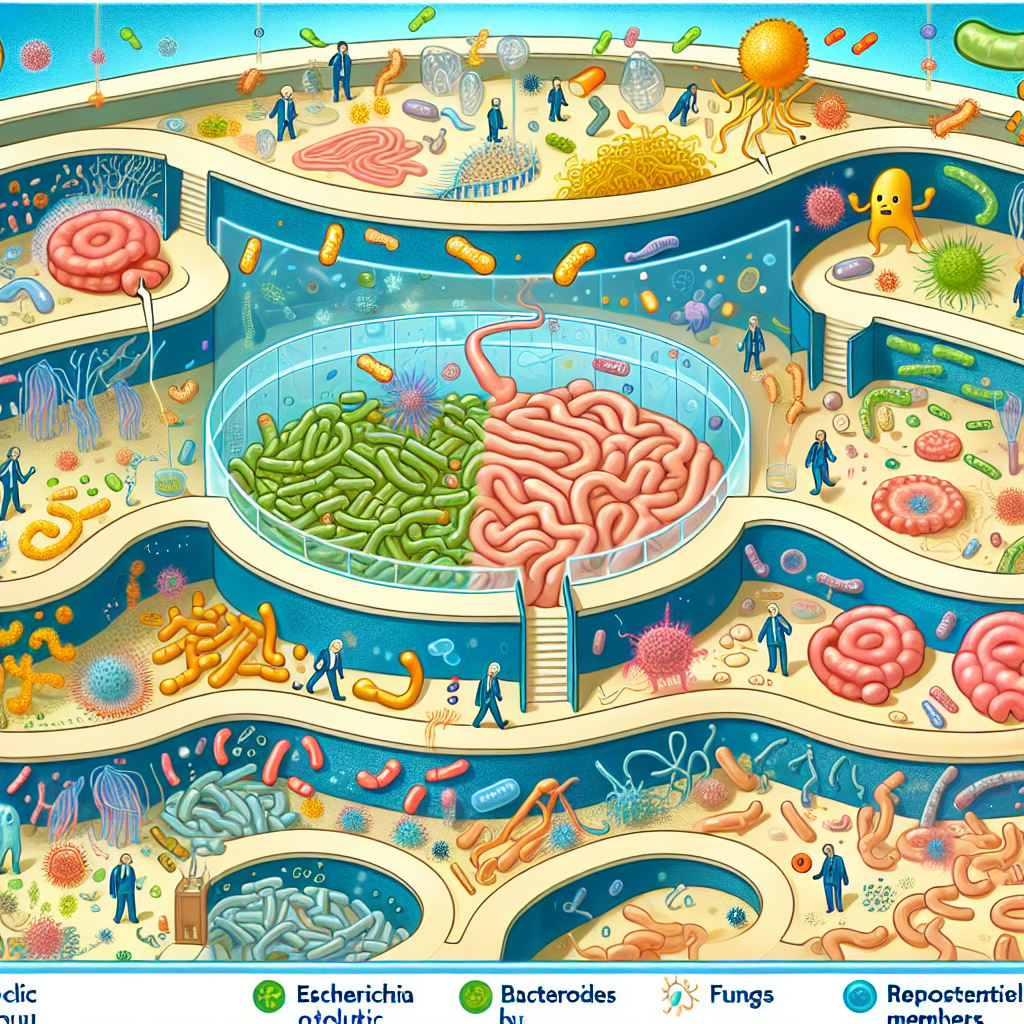
What is the Gut Microbiome?
The gut microbiome refers to the trillions of microorganisms (bacteria, viruses, fungi, and other microbes) living in the digestive tract, primarily in the colon. These microbes play a significant role in overall health, influencing not just digestion but also the immune system, brain function, and more.
Functions of the Gut Microbiome
1. Digestion and Nutrient Absorption:
• Breaks down complex carbohydrates, proteins, and fats.
• Produces short-chain fatty acids (SCFAs) like butyrate, acetate, and propionate for energy and colon health.
• Synthesizes essential vitamins (e.g., B vitamins and vitamin K).
2. Immune System Regulation:
• Acts as the first line of defense by forming a barrier against harmful pathogens.
• Interacts with the immune system to promote balance, preventing autoimmune responses.
3. Metabolism Regulation:
• Influences metabolism and body weight.
• Helps regulate blood sugar and lipid levels.
4. Brain and Mental Health (Gut-Brain Axis):
• Produces neurotransmitters like serotonin and dopamine, which influence mood and cognitive function.
• Sends signals to the brain via the vagus nerve, impacting mental health.
5. Detoxification:
• Helps metabolize and eliminate toxins, drugs, and excess hormones (e.g., estrogen).
6. Inflammation Control:
• Balances pro-inflammatory and anti-inflammatory responses.
• A dysbiotic gut can lead to chronic low-grade inflammation.
How Crucial is the Gut Microbiome?The gut microbiome is vital for:
• Immune Health: 70-80% of the immune system resides in the gut.
• Chronic Disease Prevention: Imbalances (dysbiosis) are linked to conditions like obesity, diabetes, cardiovascular disease, and autoimmune disorders.
• Mental Health: Dysbiosis is associated with anxiety, depression, and cognitive decline.
• Longevity: A balanced microbiome is associated with reduced inflammation and improved aging.
How to Balance the Gut Microbiome
1. Dietary Strategies
Foods to Include:
Probiotics: Introduce beneficial bacteria
• Sources: Yogurt, kefir, sauerkraut, kimchi, miso, tempeh, and kombucha.
Prebiotics: Feed good bacteria
• Sources: Garlic, onions, leeks, asparagus, bananas, apples, and oats.
Fiber-Rich Foods: Promote gut motility and feed microbes.
• Sources: Whole grains, legumes, fruits, and vegetables.
Polyphenols: Promote beneficial bacteria growth
• Sources: Green tea, dark chocolate, and berries.
Omega-3 Fatty Acids: Reduce gut inflammation.
• Sources: Salmon, walnuts, flaxseeds, and chia seeds.
Foods to Avoid:
• Processed foods and sugars (promote harmful bacteria).
• Artificial sweeteners (e.g., aspartame) that disrupt the microbiome.
• Excess alcohol and fried foods.
2. Lifestyle Changes
• Manage Stress: Chronic stress disrupts gut health via the gut-brain axis.
• Practices: Meditation, yoga, deep breathing, and regular exercise.
• Sleep Hygiene: Poor sleep can alter the microbiome. Aim for 7-9 hours per night.
• Stay Hydrated: Promotes healthy digestion and microbial balance.
3. Minimize Harmful Exposures
• Antibiotics: Avoid unnecessary use, as they kill beneficial bacteria.
• Chemical Exposures: Avoid pesticides, chlorine, and heavy metals that harm the microbiome.
• Limit NSAIDs: Excessive use (e.g., ibuprofen) can damage the gut lining.
4. Use Supplements When Needed
• Probiotic Supplements: Look for multi-strain products with high CFU counts (e.g., Lactobacillus and Bifidobacterium).
• Prebiotic Supplements: Include inulin, chicory root, or resistant starch to feed good bacteria.
• Digestive Enzymes: Aid digestion if your gut is struggling to process foods.
• L-Glutamine: Supports gut lining repair.
5. Gut Healing Remedies
• Bone Broth: Rich in collagen and amino acids that help repair the gut lining.
• Aloe Vera Juice: Soothes and supports the gut.
• Slippery Elm and Marshmallow Root: Coats and protects the gut lining.
6. Regular Testing and Monitoring
If you suspect imbalances, consult a healthcare provider for:
• Comprehensive Stool Analysis: To assess bacterial diversity and markers of inflammation.
• Food Sensitivity Testing: Identify foods triggering inflammation.
Carnivore Diet versus Keto Diet

Leave a Reply